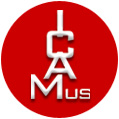Lecture on Billings, Lyceum Farmington Hills - Detroit
William Billings, who was born and spent his entire life in Boston in the age of the American Revolutionary War, was the first American professional composer. He wrote several collections of sacred and patriotic music, often introduced by prose essays. His highly personal style and adaptation of the Psalms to a new American setting gave a fundamental contribution to America's musical life, to the creation of the first choral societies, church choirs, and concert programs. But the same “primitive” character and moral strength of his compositions, that made his legendary stature, caused his fall into oblivion by the early 19th century. The lecture explores the significance and challenge of becoming an American composer, in a time when this role did not yet exist.
Recorded musical examples: WILLIAM BILLINGS (1746-1800) · Retrospect (William Billings) · Chester (William Billings) – America (William Billings) · Chesterfield (William Billings) · O, Praise the Lord of Heaven (Psalm 148, William Billings, Wentworth Dillon)
Readings: Words and music of Connection; Excerpts from the 8Preface to The New England Psalm Singer* (1770); Excerpts from the Preface to The Singing Master’s Assistant (“Billing’s Best”; 1778)
Handouts by ICAMus; Aloma Bardi, author and editor.
The Lecture is part of Lyceum 2007-2008 Art Events, in the Series “Music and Originality in the United States Before the 20th Century”, in collaboration with ICAMus, The International Center for American Music, Inc., a project by Aloma Bardi.
“This Lecture is dedicated to Richard Crawford”.
Free admission, upon invitation.

